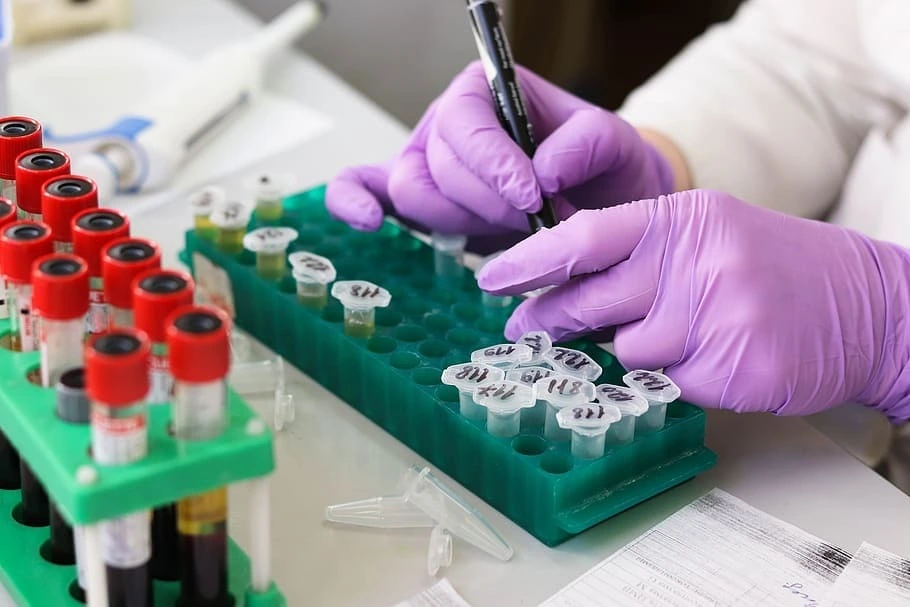How to Use Blood Volume Calculator
FEATURES
Knowing Blood Volume: Essential Knowledge for Circulatory Health
Introduction
The human body's lifeblood, blood, is essential for preserving homeostasis and guaranteeing the correct operation of numerous physiological functions. The concept of circulatory health revolves around blood volume, an essential element that impacts overall health. We explore the relevance of blood volume, its constituents, its regulation, and its role in preserving the health of the cardiovascular system in this article.
Determining Blood Volume
The entire amount of blood that is in circulation within a person's circulatory system is referred to as blood volume. Platelets, plasma, white blood cells, red blood cells, and other cellular and liquid components make up this vital fluid. Knowing blood volume is essential for diagnosing and treating a variety of medical disorders.
Components of Blood Volume
Plasma:
The complex liquid that makes up around 55% of blood volume is made up of water, electrolytes, proteins (including albumin and globulins), hormones, and waste products. It acts as a conduit for the movement of waste materials, hormones, and nutrients throughout the body.
Formed Elements:
Red blood cells (which carry oxygen), white blood cells (which perform immunological functions), and platelets (which are essential for blood clotting) make up the cellular components, which make up about 45% of the volume of blood. The interaction of these components is necessary to keep the circulatory system's delicate equilibrium intact.
Control of Blood Volume
Blood volume is strictly regulated by the body to maintain ideal cardiovascular function. Blood volume is influenced by several factors, such as:
Fluid Intake and Loss:
Maintaining the body's proper water balance and consuming enough fluids through drinking are essential. Dehydration, defined as a drop in water content, can cause a drop in blood volume, which can have an impact on circulation and blood pressure.
Hormonal Regulation:
The kidneys' ability to reabsorb water is greatly influenced by hormones, including aldosterone and antidiuretic hormone (ADH). These hormones affect fluid balance, which aids in maintaining blood volume.
Blood Pressure Control:
There is a connection between blood pressure and blood volume. Specialized sensors in the kidneys and blood arteries track variations in blood pressure and provide signals to regulate blood volume accordingly.
Clinical Consequences
Blood volume assessment is crucial in a number of clinical situations:
Surgical Procedures:
Accurate blood volume measurement is essential to avoid consequences from excessive bleeding or fluid overload.
Cardiovascular Disorders:
Diseases that affect the heart's pumping capacity, like heart failure, can cause insufficient blood flow and a drop in blood volume.
Dehydration and Overhydration:
Dehydration or excessive fluid retention can cause imbalances in blood volume, which emphasizes the significance of sustaining appropriate hydration.
Conclusion
The key to comprehending and preserving cardiovascular health is blood volume. Its complex regulation makes sure the body gets enough oxygen and minerals and effectively gets rid of waste. Frequent monitoring and knowledge of the variables affecting blood volume can prevent and treat a variety of illnesses, enhancing general health and lifespan.
TOOLS
Knowing Blood Volume Is Easy
FAQ
In individuals without life-threatening conditions, the Lemmens-Bernstein-Brodsky equation is more accurate for larger ranges of body weight and body mass index (Allen, 1962). The Nadler Equation For men, blood volume is equal to 0.6041 + (0.03219 × W) + (0.3669 × H^3). Blood volume in women is equal to (0.3561 × H^3) + (0.03308 × W) + 0.1833.
Blood volumes for adults are 70 milliliters per kilogram of body weight for males, 65 milliliters per kilogram for females, and 70–75 milliliters per kilogram for children (one year and older).
A 2020 article states that the average adult human body has approximately 10.5 pints (5 liters) of blood, though this can vary based on a number of factors. A woman's blood can increase by up to 50% during pregnancy.
Response and Justification: Blood is a chemical mixture rather than a chemical compound, hence there is no formula for it. It is composed of plasma and hemoglobin. Three protein categories make up plasma: fibrinogens, globulins, and albumins.
One unit of RBCs has a volume of around 200 mL red blood cells, 100 mL additive solution, and about 30 mL plasma, with a hematocrit of about 55%.
If you are aware of your weight in pounds, multiply it by 0.45 to get your weight in kilograms. Next, multiply the kilogram weight of your body by one of the following figures to determine the approximate milliliters of total blood volume: Blood volume in muscular guys is 75 milliliters per kilogram of body weight. Men often have 70.
Since total blood volume in circulation makes up about 7% of body weight, a 70 kg male patient's total blood volume would be about five liters.
Most mammals have blood volumes between 7 and 9% of their optimum body weight. A 5 foot human weighing half that amount (50 kg) would have a blood capacity of 6 to 8 pints, while a 7 foot giant weighing 100 kg (15 St 10 kg) would have a blood volume of 7 to 9 liters (12.3 to 15.85 British Pints).
Reviews
Ratings Summary:
Average Rating: 4.8
Rating Count: 12456
Existing Reviews
John Doe
Rating: 4
Great product, highly recommended!
Jane Smith
Rating: 5
Amazing service, will definitely come back.
Accurate Blood Volume Calculator
Thank you for using our services
If you could share our website with your friends, that would be a great help









